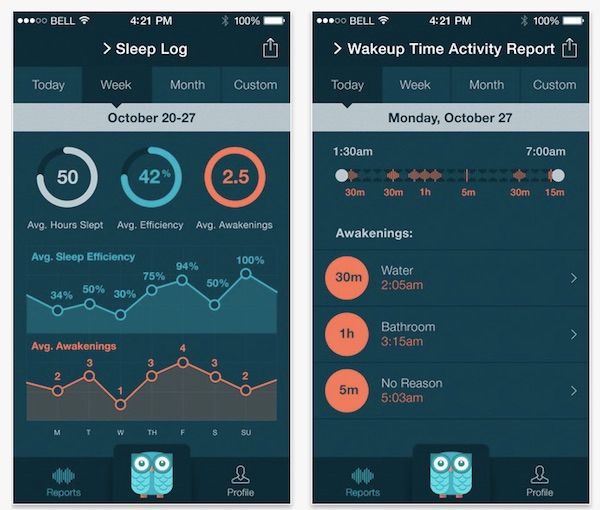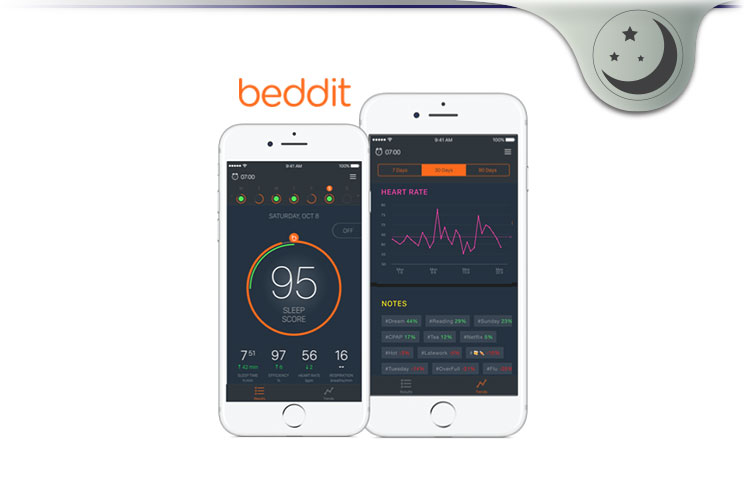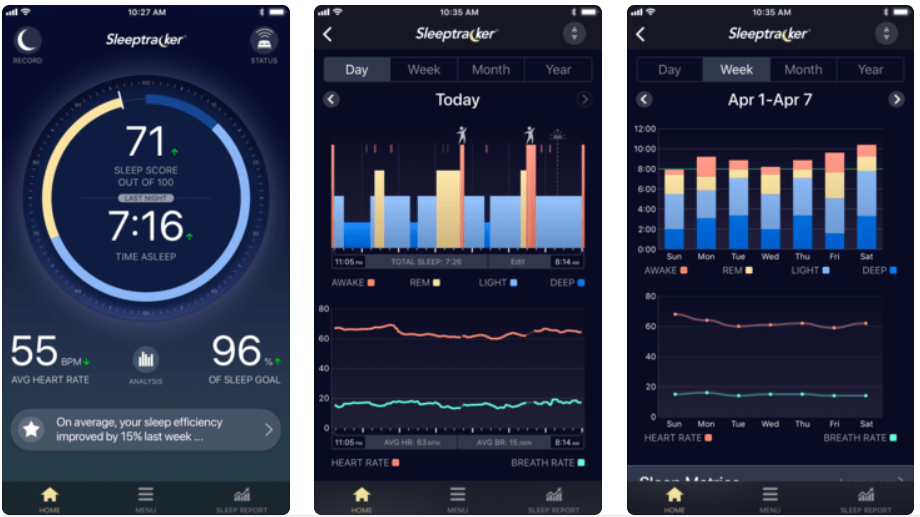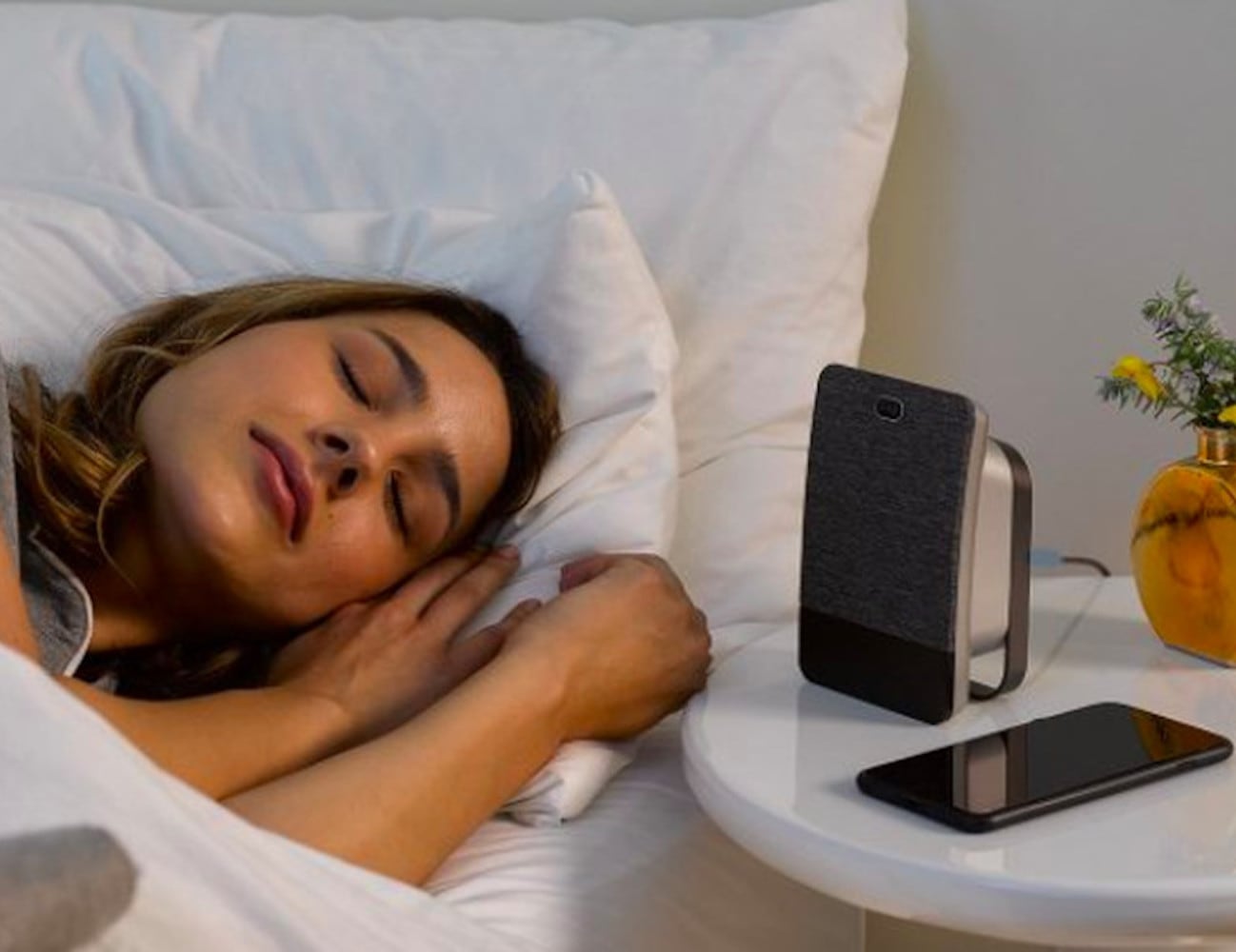

Most smartwatches and fitness trackers these days track sleep in some capacity. Photo by Amelia Holowaty Krales / The Verge With wearables, you can view your detailed sleep results in a companion app. But if you want something that’s going to multitask - say, track your workouts, take phone calls, or deliver notifications - a smartwatch or fitness tracker is the better choice. For instance, if all you want is a dedicated sleep tracker that gives incredibly detailed information and can last multiple days on a single charge, the Oura Ring and Whoop 4.0 fit the bill. This should help narrow down your choices quite a bit. What aspect of my sleep do I want to track?.Do I want the sleep tracker to do anything else?.When shopping for a device, you should ask yourself the following questions: There’s a wide range of prices, with wearable sleep trackers ranging anywhere from $50 to $1,000.

These are good options for people who want to look at sleep as a part of their overall health. These are the sleep trackers you’re likely most familiar with. If you’re unsure, try sleeping with a regular watch for a few days to see how it feels. In that case, something like the Oura Ring or a non-wearable tracker is the better bet. A sleep tracker that you rip off in the middle of the night isn’t any help. While some people have no problem wearing a watch to bed, others can’t stand it.

The main thing is figuring out whether you’ll feel comfortable wearing something while you sleep. A few examples include the Withings Sleep, the Google Nest Hub, and the Sleep Number 360 Smart Bed. Non-wearable sleep trackers include smartphone apps, smart mattress pads, bedside monitors, or even entire smart beds. The Oura Ring may be a more comfortable sleep tracker for people who don’t like wearing watches to sleep. Meanwhile, the Muse S and Kokoon Nightbuds are devices that are worn on your head. But there are also more niche wearable sleep trackers that you don’t wear on the wrist, like the Oura Ring. These include Apple Watches, Garmins, Fitbits, etc. Wearable sleep trackers are primarily fitness trackers and smartwatches that happen to also track sleep. Types of sleep trackersīroadly speaking, you can divide sleep trackers into two categories: wearable and non-wearable.
#SLEEP MONITOR APP HOW TO#
With that in mind, here’s how to pick the best sleep tracking method for you. If you think you may be prone to orthosomnia - or a preoccupation with getting “perfect” sleep - you may also want to steer clear. Instead, you should view these devices as a means of learning about your sleep habits to help improve your sleep hygiene. The jury is out on how accurate sleep trackers are, and you shouldn’t treat your results as an official diagnosis for any sleeping disorders, especially since these devices are not cleared by any regulatory body. But if you’re determined to build better sleeping habits, you can always try tracking your sleep.īefore we dive in, a quick note: sleep tracking can be a helpful tool, but there are limitations as to what it can do. And yet we live in the age of Netflix binges, a never-ending scroll of TikToks, and late-night video gaming marathons. Smart beds - which have the sensors integrated into the mattresses - also are available.Getting a good night’s sleep is one of the best things you can do for your health. Some devices also track information about the room environment, like temperature and humidity. They collect information about your movement and heart rate. You place these devices under your sheets or mattress. They may also store information about the room environment, including temperature, humidity, ambient noise and light. They primarily collect data about your body movement and breathing.

You place these devices next to your bed. You can also log your food and track daytime physical activity, including footsteps, heart rate and calories burned. They typically collect data about your movement and heart rate. You wear these devices on your wrist or finger while sleeping. There are some important differences in how sleep trackers work and what kinds of data they collect.


 0 kommentar(er)
0 kommentar(er)
